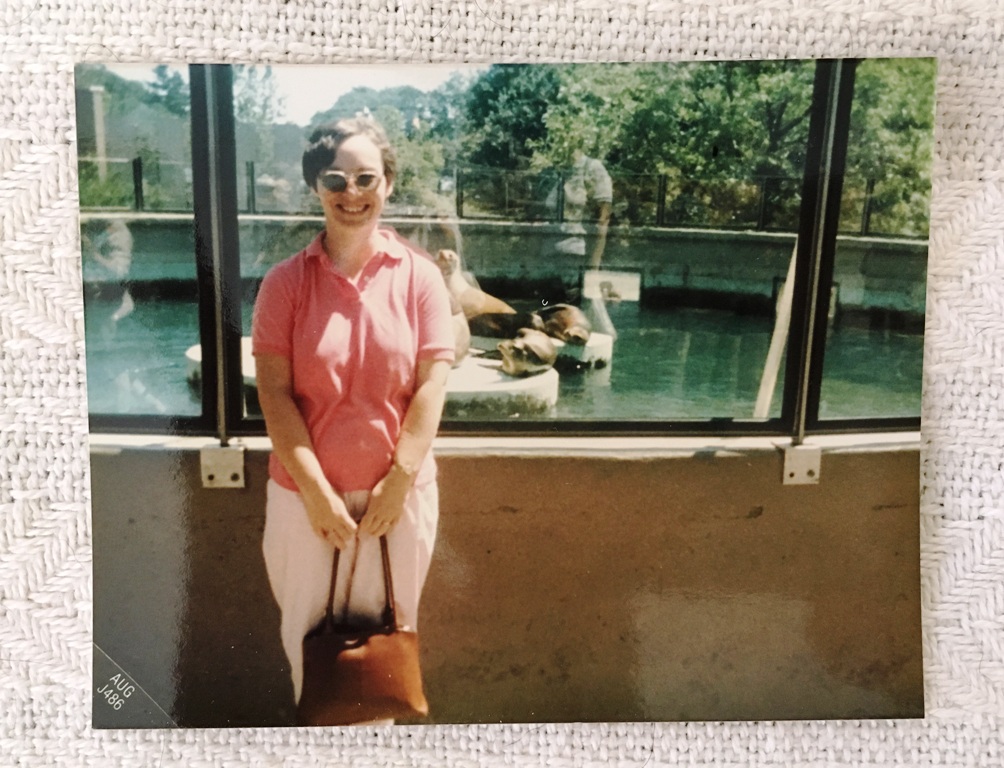My mom has Parkinson’s disease, yes that same one as Michael J Fox, and unless you read his books or know someone who has it, most may not realize what a terrible disease it is. It’s more than tremors or a shaky hand reaching for something. It will make my mom fall apart in the middle of a store, unable to move, frozen in her tracks, and she will be forced to take tiny baby steps in a confused state as people whip past her, annoyed at this slow old lady. It’s the realization that she now wets the bed every night because the disease is forcing her bladder to contract, so while she sleeps she unknowingly urinates. It’s slowly taking her mind and memories away due to the dementia side of the illness. And someday, as the progressive disease takes its toll, she will be unable to do anything on her own: eat, walk, talk, use the bathroom, enjoy her grandchildren, the disease will have taken it all.
My husband, my brother, and I watch this progression grimly. Rationally we understand the disease, it slowly cuts off her serotonin and other neurotransmitters so that the needed connections to move don’t readily work (that is putting it very simply). You lose control over that connection in which your brain tells your body what to do. We also know that there is no cure; medications can only help with the symptoms of the disease as it gets gradually worse. And the kicker is that the long term side effect of the main medication she takes ultimately leads to uncontrollable movements – just like her disease.
When she first got diagnosed I knew almost nothing about Parkinson’s disease. Like most people, I just thought it would make her hand shaky as she reached for the salt at the dinner table. Since I always think that understanding something and arming oneself with knowledge is the best route, I researched the disease. I found out what happens in the brain and what will ultimately happen as time goes by. It was a difficult read. As I grappled with her doomed fate, I cried a lot, and asked “Why? Why is this happening to her?” This is a woman who wouldn’t hurt a soul. She was a bank teller, raised her kids, learned to live her own life after divorce, and was always present for her family – why is something so terrible happening to her, I questioned. Then, I inevitably went through the “It’s not fair!” side of it, because it wasn’t. Why is my mom, a nice person, a model (more or less) human being, sentenced to this disease when child-molesting perverts, rapists, and jerks who scam old people get to lead healthy lives? It’s not fair! I angrily thought to myself.
And, no, it isn’t fair. That is true. But this isn’t about what is fair. That is just my way of caring and being angry about her illness. I know there isn’t some being in the universe, handing out punishments to bad people and rewarding the good. That is obvious by all the pain and anguish in the world. So, fair has nothing to do with it. And in the end, neither does the why. Why does she have this disease, why did she get it instead of someone else? It doesn’t matter why she has it, she does. And someone else has it too, approximately one million people in the US alone have Parkinson’s disease.
So, as hard as it is, I need to let these things go. Whenever we are faced with adversity or pain or tragedy, we often point to the why (and the government and news point to the who – as in, who is to blame for this). Then when the why (or who) isn’t answered, or even if it is, we go to the fairness of it all – and when is it ever fair? In the midst of something terrible nothing seems fair.
So I have learned to let these two things go most days and just accept that she has a terminal disease, and it’s not going away. Some days are good for her, others aren’t,

and it will get worse, but we are dealing with that as it happens. That is all. Is that easy? Definitely not. No one can watch someone get worse in tiny increments and think, “oh it’s okay, it will be okay” because it’s not. I cannot hide behind the false idea that “she’ll be okay” because she won’t.
The hard part lately is when my eight-year-old daughter said, “I wish we could take Nana’s disease and give it to someone else.” It made me realize how my very-aware daughter is witnessing this too, and how difficult it must be for her as well. I just said, “I know, I understand, but we can’t.” “But it’s not fair!” she said emphatically. “No, it isn’t,” I said, “I agree, but it’s the disease she has.” I can’t fix it or shield my daughter from her grandmother’s disease. None of us can. So, instead, we will continue to visit her regardless of her current state that day. We’ll stick by her, even when the disease takes it all, not knowing the reason why and just letting the idea of fair go. It doesn’t have a place here even if we want it to. As we painfully watch we will hope that our presence will make it easier on my mom, the one, in the end, who is suffering the most.
